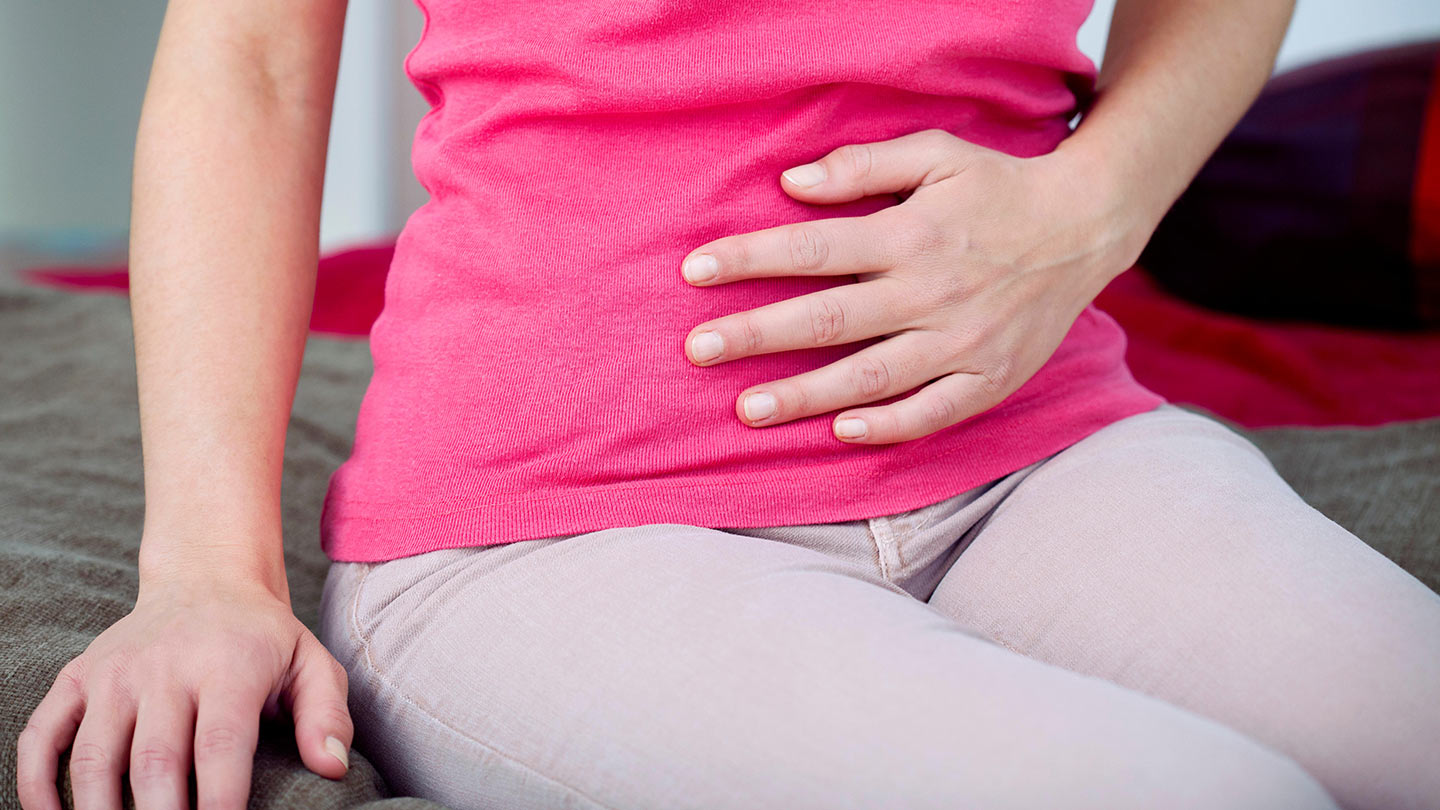Follow Your Gut Instinct to Improved Fertility

Lately, I’ve been suffering from an all-too-common problem.
I’ve been equal parts constipated, bloated and miserable.
I know, it’s a glamorous topic to discuss.
It’s not the first time this has happened to me. I’m often struggling with constipation and irregularity. But it is the first time I’ve stopped to think about what it might mean for my overall health.
I’ve always been a pretty healthy person. I don’t get sick much, rarely need to see the doctor, and have never been in the hospital except for when my son was born. This is a good thing, and I know I’m very fortunate, although sometimes it might mean that I don’t think about my health as much.
So when I’ve had the occasional bout of constipation or bloating I’ve kind of brushed it off.
I felt so miserable earlier this week that it made me take notice, and I started reading a little more about my symptoms.
What I learned shocked me.
Constipation and bloating are surefire signs of an unhealthy gut.
And guess what – the gut is the gateway to our health.
About 60-80% of our immune system is located in our gut, so an unhealthy gut can cause a lot more than just the discomfort from bloating, gas and constipation (or diarrhea). Among the conditions that can be caused by unhealthy gut include autoimmune diseases, chronic fatigue, fibromyalgia, depression and anxiety, and skin conditions like rosacea.
That’s a lot of stuff you wouldn’t readily associate with your ability to remain regular.
So then I started to wonder how gut health might affect our fertility.
It turns out that our fertility can be compromised in many different ways by an unhealthy gut.
- Our digestive health and hormone systems are closely linked – a significant amount of our hormone production takes place in the gut, including production of the reproductive hormones. Gut imbalances are linked to hormonal imbalances. Since issues with hormones and ovulation are the leading cause of female infertility, it’s not unreasonable to suggest that issues with fertility are another manifestation of an unhealthy gut.
- The extra fluff around the middle that comes from bloating isn’t just extra tissue sitting idly, a minor annoyance only when you’re trying to get into your favorite pair of skinny jeans. It can be dangerous. This extra tissue can lead to inflammation, which can also contribute to irregularities in ovulation and affect fertility. This makes me look at the extra pounds I put on this summer in a whole new way.
- Diarrhea and constipation are indicators of poor digestion, in that diarrhea is an indicator that food is rushing through the digestive tract, and constipation an indicator that it is stagnating. When food moves too quickly, its vital nutrients aren’t able to be properly absorbed by the body. Intestinal bacteria are also compromised. When it’s stagnating, toxins linger in your body. Either scenario leads to a vulnerability to bacterial conditions associated with infertility and early pregnancy loss.
I feel like I’ve barely scratched the surface on all that there is to learn about this, and what I’ve already discovered and shared with you here is compelling. I’m going to keep exploring this topic, but in the meantime, here are some ways you can work to keep your gut healthy.
- You are what you eat. A healthy, balanced diet is an essential building block of healthy gut function. Eat a diet rich in whole fruits and vegetables, limited dairy and red meat (both can lead to inflammation). Fiber is also essential for healthy digestive function, so make sure your diet is rich in fiber, which can be found in whole grains, lentils, beans and fruits.
- You are how you eat, too. Pay attention to how you’re consuming your food. In general, scarfing down your food while standing at the kitchen sink before running out the door to your next engagement isn’t ideal. Eat slowly and mindfully, thoroughly chewing each bite as this facilitates pre-digestion before your food ever hits the digestive tract. Enjoy a full range of flavors at each meal, and eat when you’re hungry and stop when you’re full. I’ve had many about of indigestion when I’ve felt like I needed to eat everything on my plate so as not to waste anything even though I was full. It’s not pretty.
- You are what you drink. It really is true; we do need our water every day. For hydration, for glowing skin, and for our digestion too. Water acts as a digestive aid, nourishing the digestive system. It helps break down food so your body can absorb nutrients. It also softens your stools, preventing constipation. So make sure you get your water every day; aim for half your body weight in ounces.
- Pay attention to your elimination. It’s a great indicator of your overall digestive health. It’s a little hard to gauge, though, as there’s no “ideal” in the world of bowl movements. Your bowels are unique to you, and what is normal for you may not be normal to somebody else. You can have a bowl movement 3 times a day or 3 times a week and be considered regular, as long as that’s what’s normal for you. I encourage you to pay attention to your elimination, and take action if your bowel movements start to stray from your usual pattern and/or you’re feeling extremely uncomfortable.
Do you struggle with digestive issues? Leave me a comment below!
To your digestive health,
Stephanie xo



